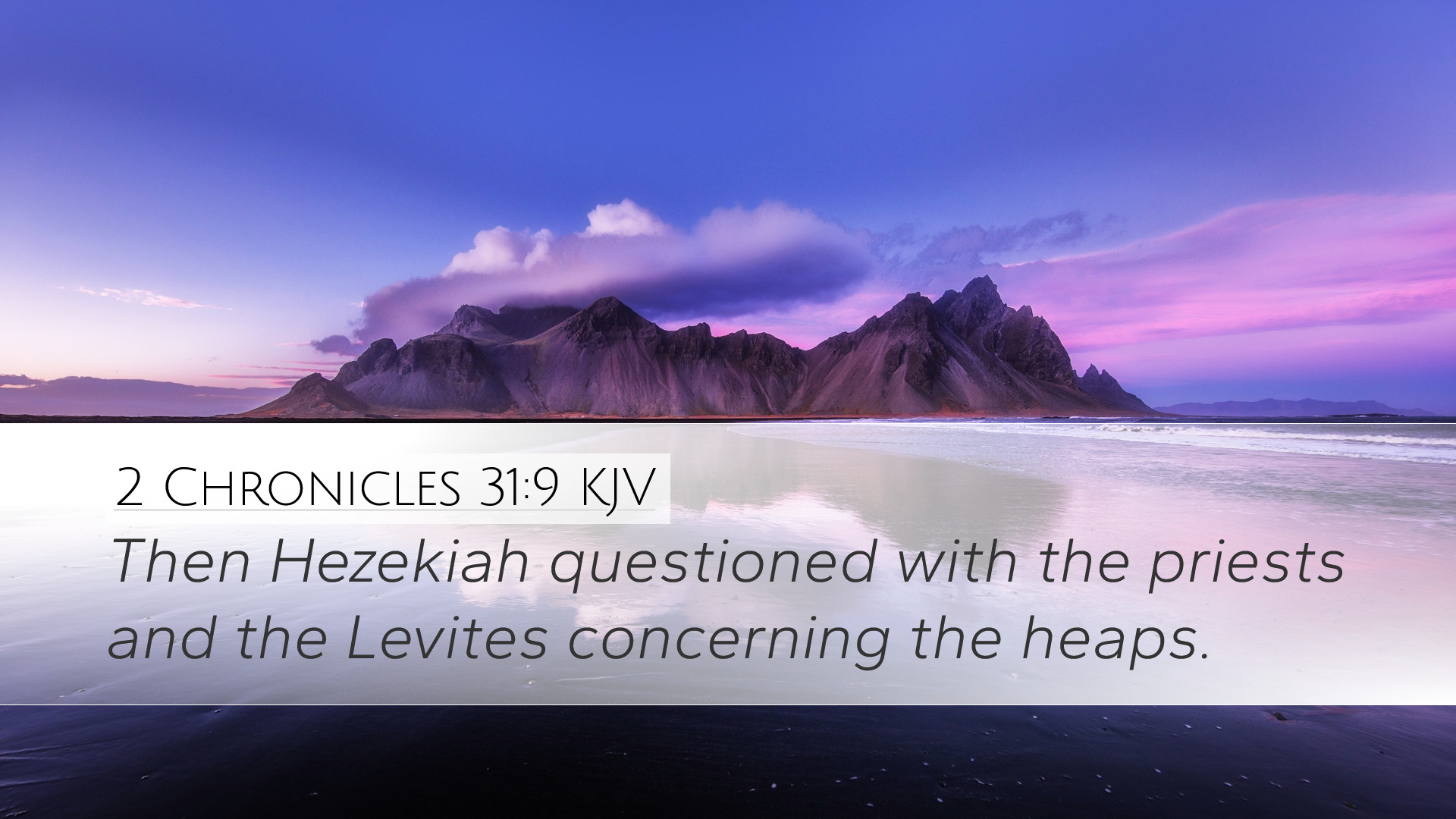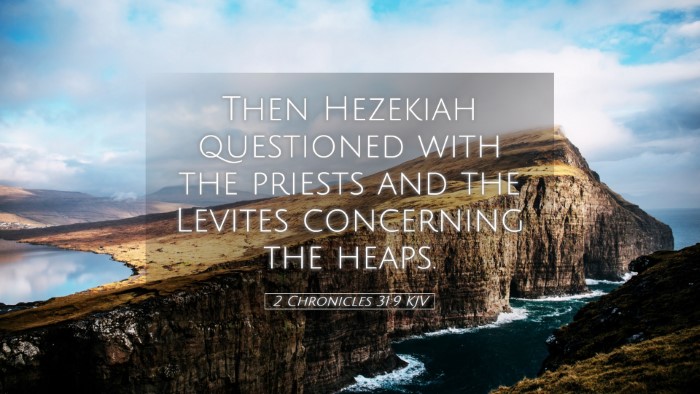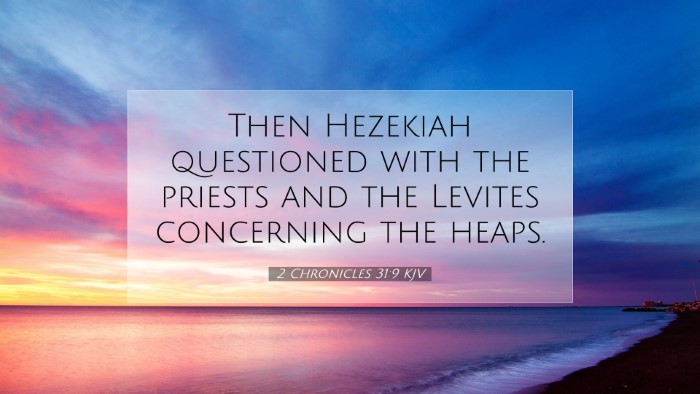Commentary on 2 Chronicles 31:9
Verse: "And Hezekiah asked the priests and the Levites concerning the heaps." (2 Chronicles 31:9, KJV)
Introduction
This verse occurs within a broader narrative of Hezekiah's religious reforms and the restoration of proper worship in Judah. After reviving the practices of the temple, Hezekiah inquires about the abundance of offerings that have accumulated, reflecting both his pastoral concern and the prioritization of spiritual affairs.
Contextual Background
Hezekiah reigned as king of Judah and is noted for his dedication to restoring the proper worship of Yahweh. The passage highlights his engagement with the priests and Levites, signifying the collaborative nature of spiritual leadership in ancient Israel. This inquiry into the "heaps" symbolizes the faithfulness of the people in their offerings, indicating a genuine return to covenantal faithfulness.
Theological Insights
-
Divine Provision:
Hezekiah's question regarding the heaps represents a recognition of God's abundant provision. Matthew Henry notes, "The very pressures of his ministry brought him to inquire of the priests, which shows his earnestness for the reforms he had instituted."
-
Community Involvement:
Albert Barnes emphasizes the importance of communal participation in worship: "Hezekiah’s leadership prompted a united approach to worship, motivating the people to bring their offerings willingly, thus fostering a sense of community in covenant loyalty."
-
Spiritual Accountability:
Hezekiah’s inquiry reflects a theme of accountability within the priesthood. Adam Clarke observes that a leader must be aware of the spiritual state of those under their authority, echoing the necessity for vigilance in worship practices.
Exegesis and Interpretation
The inquiry about the "heaps" can be understood as more than mere concern for material abundance; it illustrates a spiritual state where worship is revitalized. The heaps signify not only the material wealth but also the heart's response to divine mercy.
Spiritual Wealth Versus Material Wealth
While the heaps could evoke thoughts of material wealth, they also symbolize spiritual prosperity. Henry suggests, "The heaps imply that God’s people have returned to Him in sincere gratitude, leading to an abundance of blessings in all forms."
Role of Leadership in Worship
Hezekiah represents a model leader who actively engages with the religious practices of his nation. His question demonstrates that authentic leadership involves periodic reflection and accountability in spiritual matters, setting a precedent for modern church leaders.
Application for Today’s Church
-
Revitalizing Worship:
The church today must focus on revitalizing worship practices, drawing from Hezekiah’s example. Just as he sought the counsel of his priests, modern leaders should engage their congregations in dialogue about their spiritual lives.
-
Understanding Abundance:
Like Hezekiah's inquiry about the heaps, church leaders must evaluate the abundance of resources at their disposal, ensuring they are utilized for the glory of God and to meet the needs of their community.
-
Fostering Community:
The response of the people in bringing their offerings reflects a healthy community where members understand their role in the overall worship experience. Emulating this in contemporary settings can lead to more profound spiritual fellowship and growth.
Conclusion
2 Chronicles 31:9 serves as a powerful reminder of leadership, community, and the importance of spiritual inquiry. Hezekiah's engagement with the priests and the Levites concerning the heaps underscores a principle that remains relevant; genuine worship prompts a response that is both material and spiritual. In the act of seeking understanding, leaders can draw their communities into deeper relationship with God and each other, fostering a culture of gratitude and abundance.


